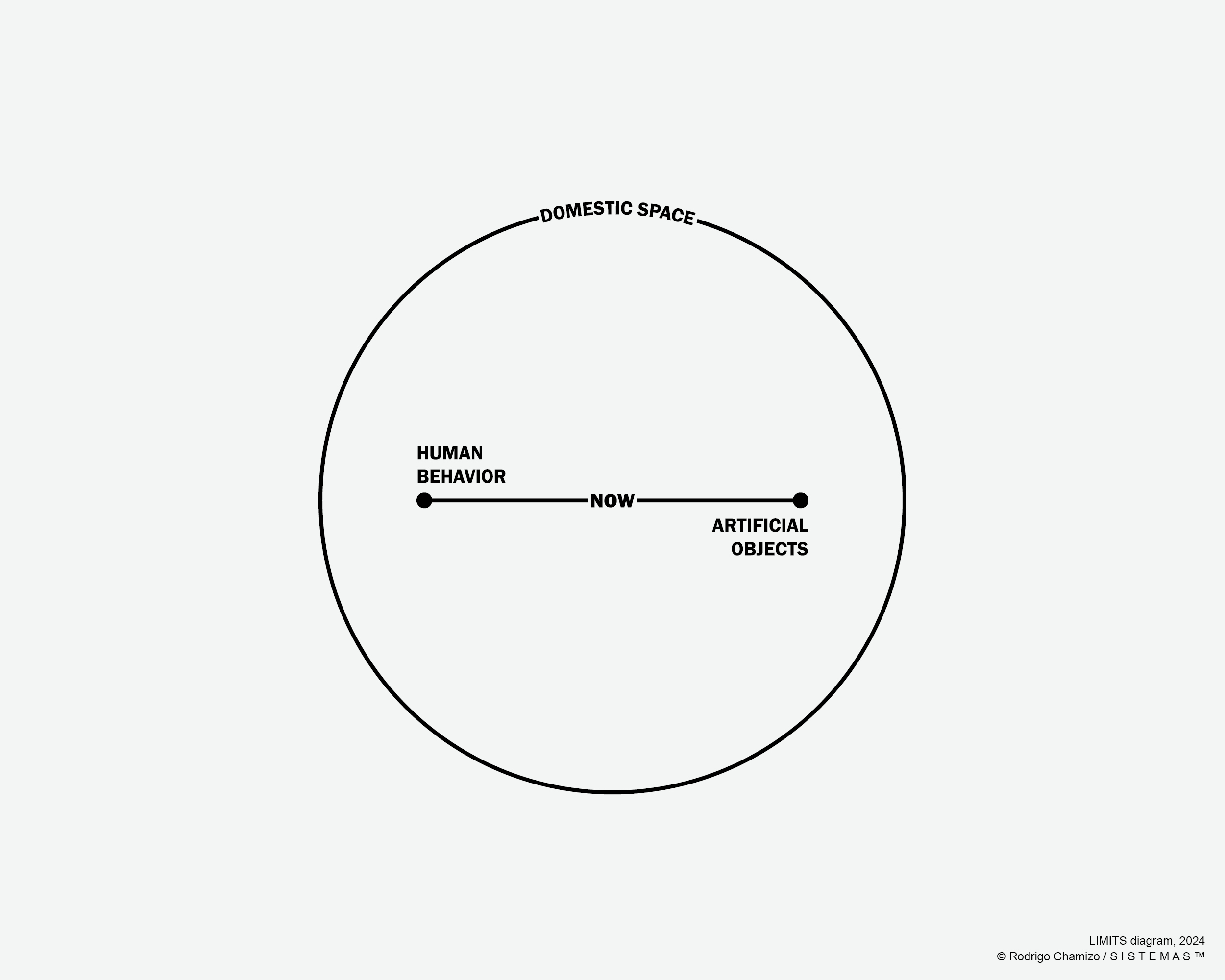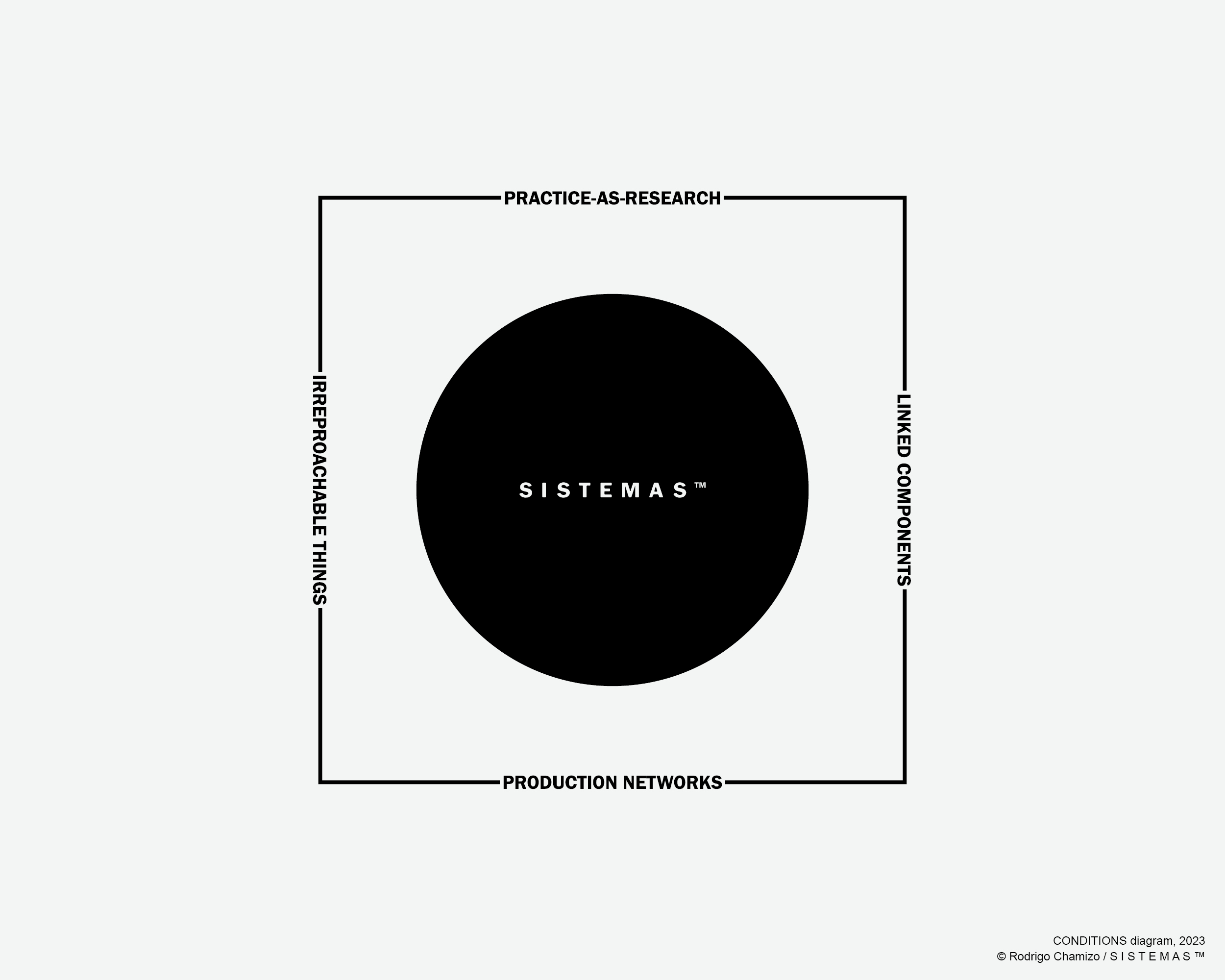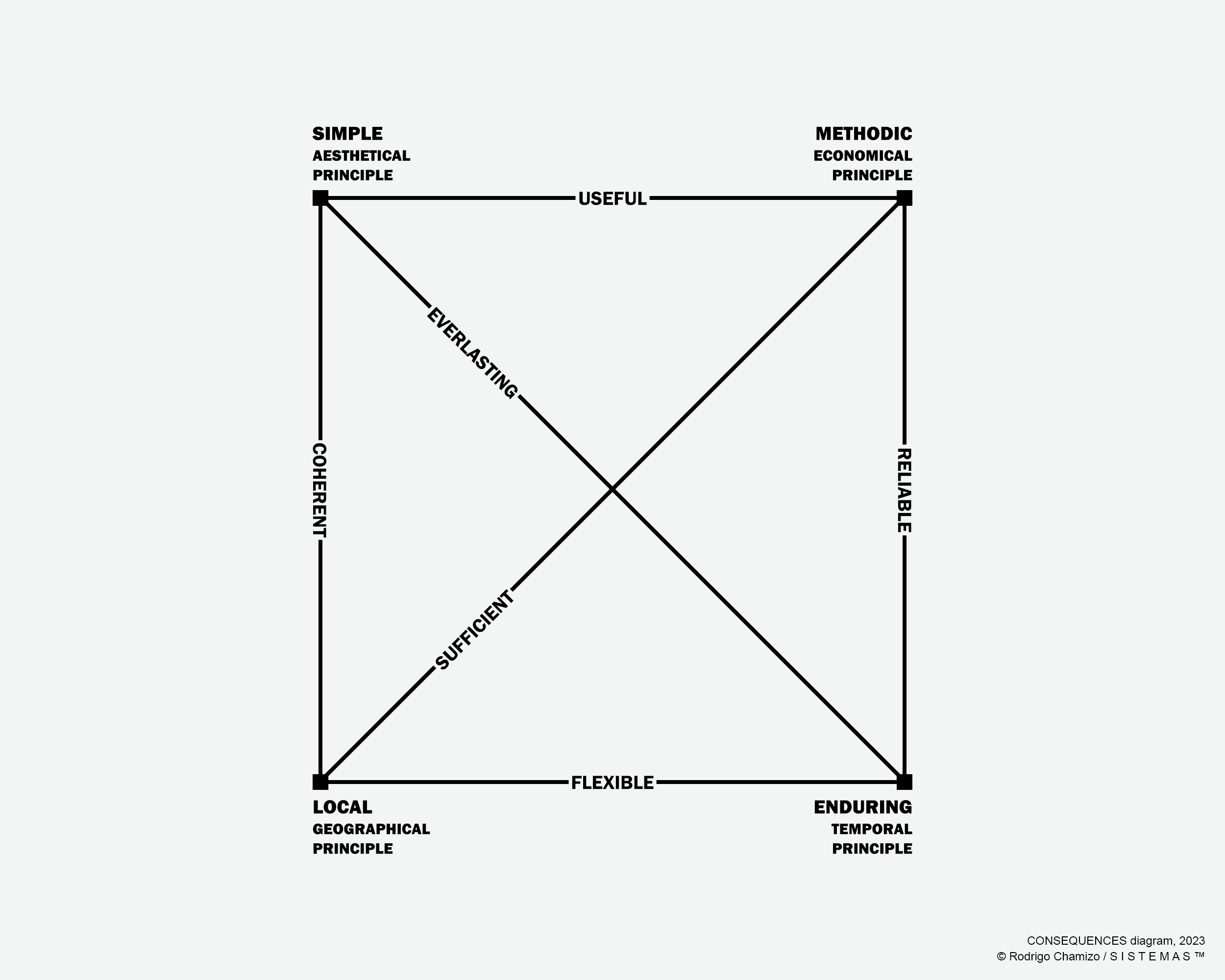-
 P______o table
2024
P______o table
2024
-
 Bristool seat
2022
Bristool seat
2022
-
 Lvs.T low table
2019
Lvs.T low table
2019
-
![[R][B] storage unit](rb_storage_unit/02.jpg) [R][B] storage unit
2019
[R][B] storage unit
2019
-
 U/ leg
2019
U/ leg
2019
-
 A hook
2018
A hook
2018
-
 AAAA coathanger
2018
AAAA coathanger
2018
-
 I handle
2018
I handle
2018
S I S T E M A S ™
2018 - ongoing
Furniture & homeware editor
Based in Mexico City, my research-oriented furniture & homeware editor is focused on the local and efficient production of long-lasting utilitarian objects, under a precise set of rules:
1. Limits
Researching contemporary relationships between human behavior and artificial objects on a domestic space.

2. Conditions:
Practice-as-research
In the sense of exploring material possibilities, design language must foster curiosity, imagination, knowledge, and critical
thinking, maintaining a solid ethical and environmental stance.
Linked components
Enhancing the potentials of modularity, recombination, and variables in use, object systems must be open, simple, and flexible,
encouraging action as a discursive activity.
Production networks
To reduce issues related to dependency, transport, costs of stock, and waste generation, fabrication methodologies must be
optimized, replicable, scalable, and decentralized, proposing viable production solutions for the future.
Irreproachable things
And after all, in practical terms, products must be affordable, useful, everlasting, and self-explanatory; otherwise, these
are purely theoretical shenanigans.

3. Consequences:
Aesthetical principle: Simple
Design straightforward objects with a trend-independent aesthetic, good intuitive user experience, reject ornament and
unnecessary conceptual layers, as tastes are contextual but being useful is not; utility is beauty.
Economical principle: Methodic
Design for degrowth [1], sustainability, minimal resource impact, standardized materials and processes,
as in a world with limited resources efficiency is critical; optimize everything.
Geographical principle: Local
Design for accessible materials and processes, native economies and production networks, fair redistribution of money,
as the real value of objects depends on how they improve the lives of those around you; produce close.
Temporal principle: Enduring
Design for multiple uses, reconfiguration, easy repairability, disassembly and separation of materials, quality long-lasting
objects, as the longer the product life the later it needs to be replaced; end obsolescence.
[1] www.degrowth.info/degrowth ↗

Links
- S I S T E M A S ™ ↗
by Rodrigo Chamizo